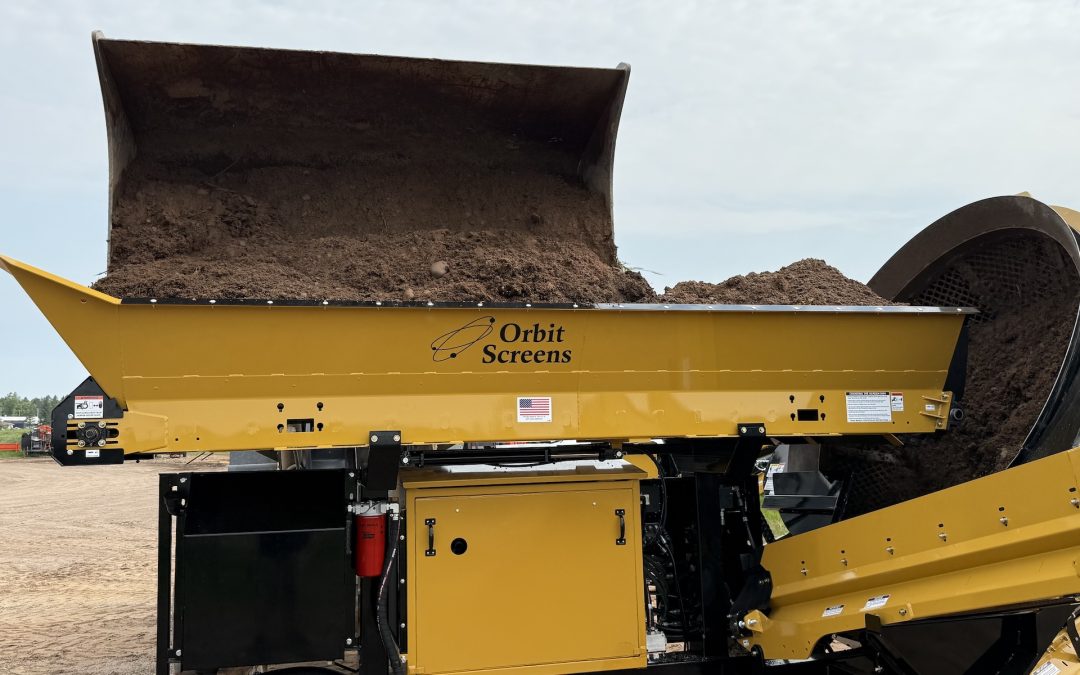In the world of construction, landscaping, and environmental management, how you process soil, compost, aggregate, and other bulk materials can make or break your bottom line. That’s where Orbit Screens comes in — with a novel approach, rugged machines, and a vision of transforming the way we sort and use materials.
What Is Orbit Screens?
Orbit Screens is a specialized machinery company, headquartered in Prentice, Wisconsin. Orbit Screens They design and manufacture screening plants that use orbital motion (rather than traditional vibrating or trommel systems) to sort materials. Their machines are intended for broad “general-purpose” use — handling feedstocks like:
-
Topsoil
-
Compost
-
Mulch
-
Gravel and rock
-
Yard waste
-
Even trash or demolition material Orbit Screens
In fact, their screens are built tough enough to handle extreme and unexpected material mixes — in their own words, “from rock to even land mines” (the idea being that their design is robust enough to take on really rough jobs). Orbit Screens
They are a division of Multitek, a company already known in the firewood and logging space. Orbit Screens That heritage plays a role in Orbit’s culture of building rugged, durable machines for demanding environments.
How Their Technology Works
Traditional screeners often rely on vibration or rotating drums (trommels). Orbit Screens instead uses an orbital motion — meaning the screen surfaces move in an orbital/elliptical pattern rather than simply up-and-down or circular. The idea:
-
It reduces clogging and blinding (materials getting stuck)
-
It gently separates finer particles from coarser ones without excessive bouncing or damage
-
It allows more uniform throughput with less wear on parts
This mechanism gives the screens flexibility across material types, from soft compost to heavier rock and debris.
Key Products & Options
Orbit Screens offers several series and models, plus accessories. Some of their product lines include: Orbit Screens
-
Series 60 (models like 60, 61D, 68D)
-
Series 50 (e.g. model 58D)
-
Series 100 (model 108)
-
Various conveyors (20′, 30′, 40′)
-
Hopper extensions
-
Grizzly attachments
Each of these options helps customize a machine to your specific material, volume, and throughput needs.
Use Cases & Applications
Orbit Screens machines are used in many sectors. Some of the more common applications:
| Sector | Use Case |
|---|---|
| Landscaping / Nursery / Horticulture | Screening topsoil to remove rocks, sticks, and debris; producing uniform mulch |
| Composting & Organic Waste | Separating fines, removing contaminants, producing consistent compost grades |
| Construction & Demolition | Sorting crushed rock, recycled concrete, and fill material |
| Aggregate / Quarry | Screening aggregate to meet spec gradations |
| Waste / Recycling | Pre‐screening mixed waste or organics for further processing |
Because of their flexibility, many businesses incorporate these machines to unlock value from waste streams — for example, turning a pile of mixed excavated soil into usable fill or saleable topsoil.
Benefits & Selling Points
Orbit Screens lists several compelling advantages:
-
Versatility — can handle many different materials without constant reconfiguration
-
Durability — built to last in tough environments
-
High throughput with low maintenance — less downtime and fewer parts to replace
-
Better product quality — more consistent separation, fewer contaminants
-
Environmental benefits — allows more recycling, less waste, and more efficient use of resources
From what users say, machines often exceed expectations. One customer commented that with ~700 hours in the field, it “surpassed anything we imagined.” Orbit Screens
Financial & Practical Considerations
Return on Investment (ROI)
Orbit Screens offers an ROI Calculator on their site — a tool that helps potential buyers estimate how much cost savings (via material recovery, reduced disposal, increased product sales) their equipment could generate. Orbit Screens
Because the machines can convert what might have been “waste” into usable product, the revenue or cost‐savings side of the equation can be significant.
Financing
They also provide financing options. Orbit Screens This can be crucial for smaller operations or those wanting to scale without a huge upfront capital outlay.
Support & Resources
Orbit Screens offers a rich set of supporting content:
-
Blog articles
-
FAQs
-
Case studies
-
Videos
-
“Screening Secrets” — presumably tips/tricks for better operation Orbit Screens
Good support and user education can help customers get the most out of their machines.
Challenges & Considerations
No product is perfect. Some factors to think about:
-
Initial cost — even with financing, robust screening machines are a capital investment.
-
Training & operation — to get optimal performance, operators must understand feed rates, screen sizing, and maintenance.
-
Wear parts — over time, screens and contact surfaces will degrade and need replacement.
-
Material extremes — while the machines are versatile, pushing them into applications beyond design limits (e.g. very large rock, heavy metal debris) might accelerate wear.
-
Logistics — moving large screening plants may require equipment handling, transport permits, etc.
Why It Matters: A Shift Toward Circular Materials
Orbit Screens isn’t just selling machines — they’re enabling more circular economies in the materials space. By giving operators tools to recover value from otherwise “waste” piles (soil, demolition rubble, organics), we reduce landfill use, cut costs, and create more resilient supply chains for materials like topsoil, compost, and aggregate.
In sectors grappling with sustainability and waste reduction mandates, having access to robust, flexible screening machinery is a strong competitive advantage.
Conclusion
Orbit Screens stands out by merging smart mechanical design (orbital motion), durable construction, and a focus on real-world flexibility. For businesses in landscaping, composting, construction, and recycling, their machines offer a pathway to not just managing material, but adding value to it.
If you’re considering a screening solution, Orbit Screens is definitely a brand worth looking at. Want me to draft a comparison vs other screening technologies or a “how to pick the right machine” guide? I’d be happy to write that next.

